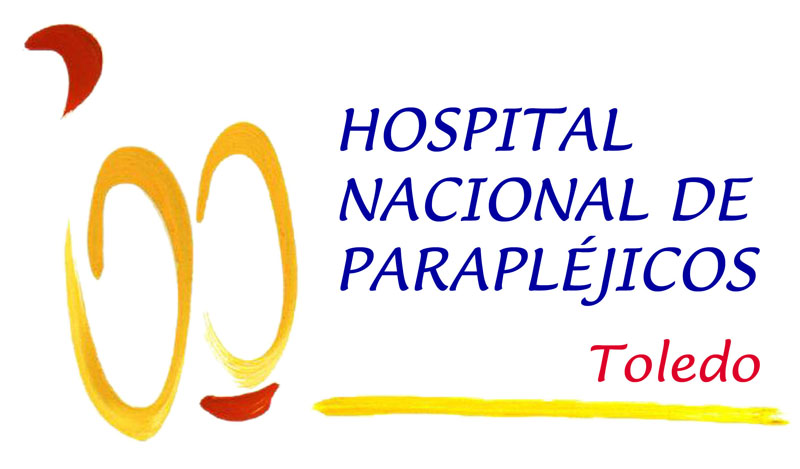Keynote Speakers (confirmed)
This list will be updated periodically
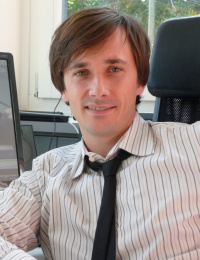 |
Prof. Grégoire Courtine International Paraplegic Foundation (IRP) Chair Center for Neuroprosthetics and Brain Mind Institute School of Life Sciences Prof. Dr. Grégoire Courtine was originally trained in Mathematics and Physics, but received his PhD degree in Experimental Medicine from the University of Pavia, Italy, in 2003. From 2004-2007, he held a Post-doctoral Fellow position at the Brain Research Institute, University of California at Los Angeles (UCLA) under the supervision of Dr. Reggie Edgerton. In 2008, he became assistant professor at the university of Zurich in Switzerland where he established his own research laboratory. He recently has been nominated Associate Professor at the Swiss Federal Institute of Technology in Lausanne (EPFL), within the newly-launched Center for Neuroprosthetics and the Brain Mind Institute. The main focus of his lab includes the development and use of neuroprosthetic systems, robotic interfaces, pharmacological cocktails, neuroregenerative therapies, and neurorehabilitation interventions to restore motor functions after neurological impairments such as spinal cord injury or stroke. His laboratory addresses a wide range of research paradigms in mice, rats, cats, monkeys, and humans. In the past four years, he published several articles in Nature Neuroscience and Nature Medicine, which were discussed in national and international press extensively. He received numerous honors and awards such as the 2007 Chancellor’s award for excellence in post-doctoral research from UCLA and the 2009 Schellenberg Prize for Research that was awarded by the International Foundation of Research in Paraplegia. |
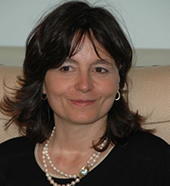 |
Prof. M. Chiara Carrozza Scuola Superiore Sant’Anna Pisa, Italy Prof. Maria Chiara Carrozza received the Laurea degree in physics from the University of Pisa, Italy, in 1990 and the PhD in Engineering at Scuola Superiore Sant'Anna (SSSA), in 1994. Since November 2006, she is Full Professor of Biomedical Engineering and Robotics at Scuola Superiore Sant’Anna. Since Nov. 2004 to Oct. 2007, she was Director of the Research Division and elected Member of the national Board of the Italian association of Biomedical Engineering. Since Nov. 2007, she is Rector of Scuola Superiore Sant’Anna. She was visiting professor at the Technical University of Wien, Austria, with a graduate course entitled Biomechatronics, she is involved in the scientific management of the Italy-Japan joint laboratory for Humanoid Robotics ROBOCASA, Waseda University, Tokyo, and she is Guest Professor at the Zhejiang University, Hangzhou, China. She has scientific and coordination responsibilities within several research projects, funded under the Sixth and Seventh Framework Programme of the European Union (some recent projects are CYBERLEGs, WAY, CogLaboration, Nanobiotouch, Evryon, SmartHand, Nanobiotact, Neurobotics, RobotCub, CyberHand) and under national and regional programmes (some recent projects are OPERA, EARLYRehab, AMulos, OpenHand, Tectum, Rita, Safehand, Neuro-Bike). Since 2004 to 2007, she was the Coordinator of the ARTS Lab of SSSA. In the period 2006-2011 she supervised more than 45 PhD, Master and Bachelor theses and she currently leads a group of about 35 researchers, PhD students and research assistants. She is author of several scientific papers (more than 85 ISI papers and more than 150 papers in referred conference proceedings) and of 12 national and international patents. She served as Editor of at least 4 Special Issues of International Journals, as Member of Committees for at least 13 International Conference organizations, she gave more than 50 invited lectures and plenary speeches to national and international conferences, and she is a recipient of at least 11 awards. She is member and of the IEEE Robotics and Automation Society (RAS) and of the IEEE Engineering in Medicine and Biology. She is member of the RAS Technical Committee “Micro/Nano Robotics and Automation”. Her research interests are in ambient assisted living, technical aids, biorobotics, rehabilitation engineering, bionics, cybernetic hands, humanoid robotics, systems for functional replacements and augmentation, biomechatronic interfaces, tactile sensors, artificial skin, harvesting microtechnologies, human touch. |
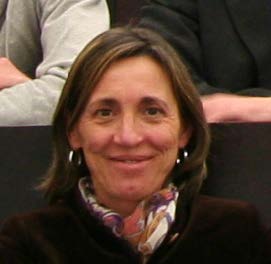 |
Prof. Donatella Mattia Clinical Neurophysiology Neuroelectrical Imaging and BCI Lab Fondazione Santa Lucia, IRCCS Dr. Donatella Mattia took her degree in Medicine at "Sapienza" University of Rome, in 1987 with summa cum laude. In 1992 took her residency in Neurology, at the Dept. of Neurological Science, "Sapienza" University of Rome, with summa cum laude. In 1997 completed her PhD in "Organization and Pathology of Movement" at the Dept. of Neurological Science, “Sapienza" University of Rome. During her PhD course she spent 4 years at the Montreal Neurological Institute and Hospital, McGill University (Montreal, QC, Canada) as visiting scientist where she investigated some of the electrophysiological mechanisms of the cortical excitability by using the intra- and extra- cellular recording performed on “in vitro” animal and human brain slice preparation. She started in 1998 her research activity at the Neurophysiology Dept. at the Fondazione Santa Lucia, IRCCS, Rome, Italy, where she is currently working as a director (since 2004) of the Laboratory of Neuroelectrical Imaging and Brain Computer Interface. Over the years, Dr. Mattia employed advanced signal processing and bioengineering techniques to investigate the basis of human planning and execution of motor actions under both physiological and pathological conditions. She promoted the development of clinical protocols for assessing the application of BCI, and the development of the BCI operated assistive device, namely a system endowed with robotic and domotic appliance controlled in reduced or absence of muscular effort. More recently, Dr. Mattia has been promoting the application of the EEGbased BCI technology in a clinical setting as rehabilitation tool, both in terms of functional substitution and functional recovery. In this specific field, she has been the principal investigator in several international and national research projects. Dr. Donatella Mattia is author of about 100 papers published on peer-reviewed journals (h-index 21 (ISI)) and of several contributions to international Conferences and Schools. |
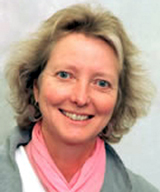 |
Prof. Jane Burridge Prof. of Restorative Neuroscience and Head of Rehab. and Health Technologies Research Group Faculty of Health Sciences University of Southampton Prof. Burridge's research is into neuro-rehabilitation; the cortical, spinal and peripheral changes associated with loss and recovery of sensory-motor function. Much of her work is done in collaboration with the engineering disciplines (control, signal processing and sensors) in the development and evaluation of novel technologies to augment sensory-motor recovery of the arm and hand following stroke. Functional Electrical Stimulation (FES) and Rehabilitation Robotics have been rich areas of her research and, over the last few years, the application of Iterative Learning Control to modulate stimulation to improve learning. Non-invasive Brain Stimulation is a new area of work that she is particularly interested to expand. Translating rehabilitation technologies into clinical practice and in particular using the internet to support home-based rehabilitation are now important areas of her research and critical the delivery of cost-effective rehabilitation. She is always interested in forming new research collaborations and in supervising PhD students from clinical, engineering and psychology disciplines. She teachs an MSc Module called 'Sensory-Motor Interaction in Neurorehabilitation' which is available as a stand-alone course or as part of the MSc in Health and Rehabilitation. |
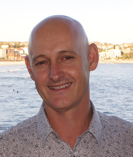 |
Prof Nigel Lovell Graduate School of Biomedical Engineering University of New South Wales Nigel Lovell is currently at the Graduate School of Biomedical Engineering University of New South Wales, Sydney where he holds a position of Scientia Professor. He has authored 500+ refereed journals, conference proceedings and abstracts, and been awarded over $68 million in R&D and infrastructure funding. His research work has covered areas of expertise ranging from cardiac modeling, telehealth technologies, biological signal processing, and visual prosthesis design. He has commercialised a range of telehealth technologies for managing chronic disease and falls in the older population and is also one of the key researchers leading an R&D program to develop an Australian bionic eye. He is a Fellow of four international academies/organisations and in 2000 was awarded the IEEE Millennium Medal for services to the IEEE Engineering in Medicine and Biology Society (EMBS) and the profession. |
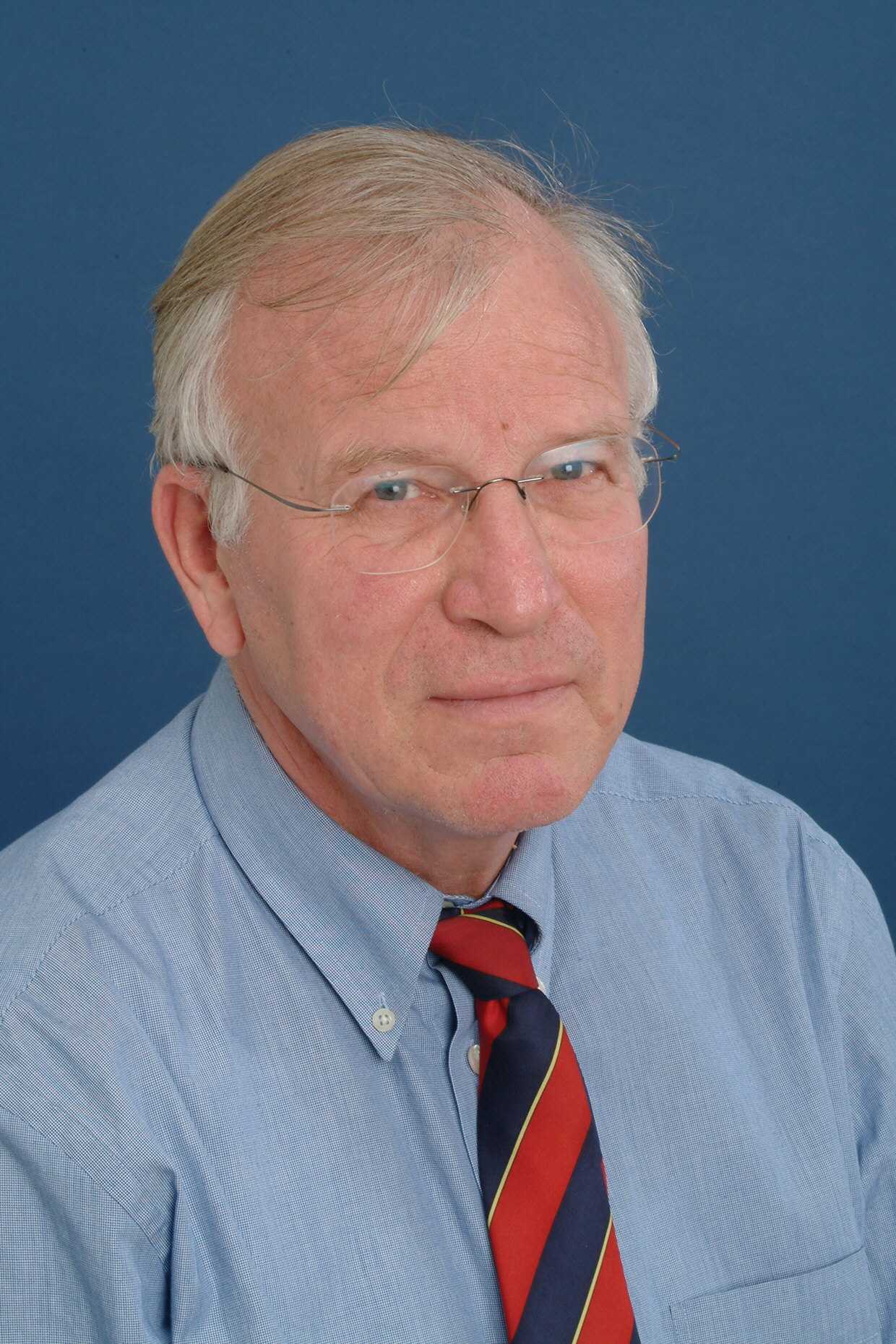 |
Prof Volker Dietz Spinal Cord Injury Center Balgrist University Hospital Zurich, Switzerland Professor Dr. Volker Dietz completed medical training and specialisation in neurology and neurophysiology at the University of Freiburg, Germany. His research was devoted to human motor control and movement disorders. Using the technique of neurophysiological recordings during movements he established a novel pathophysiological basis of, for example, spastic movement disorder. The discrepancy between the clinical condition of spasticity and the movement disorder had profound therapeutical consequences. In 1992 Prof Dietz became director of the Spinal Injury Center and chairman of Paraplegiology at the University of Zurich, i.e. the first chair in Paraplegiology in Europe. With the cooperation with Martin Schwab from the Brain Res Institute together with the Novartis company he translated basic research of the effect of Nogo A antibodies on spinal tract regeneration in SCI animals to the human setting. For the clinical application of regeneration inducing therapies and the establishment of standardized assessments Dietz founded (together with Armin Curt and Martin Schwab) the European network of paraplegic centers (EMSCI network). Another focus of research (together with the Engineer Gery Colombo) was the development of robotic devices neurorehabilitational, such as the 'Lokomat'. He edited, (together with T. Nef and Zev Rymer) the Handbook on "Neurorehabilitation Technology" coming out in January 2012. Another focus of research during last years was the course of neuronal function after deprivation of supraspinal input as a basis for a successful regeneration inducing therapy). In 2002/2003 he was guest-professor in the Miami Center to Cure Paralysis in Miami. Dietz has published 288 peer reviewed original papers and received several awards for his research on spinal cord injury (e.g. 'Heiner Sell lecture' awarded by the ASIA). |

